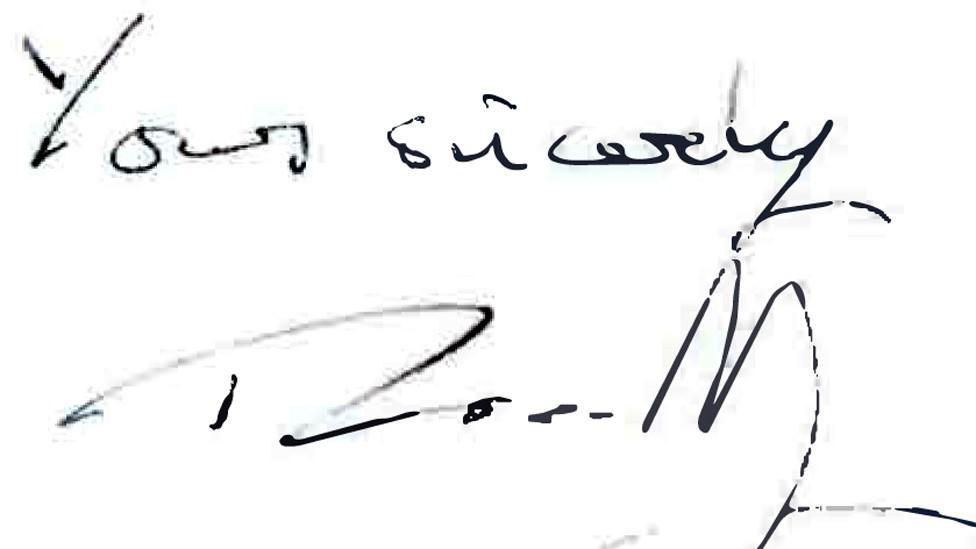Scottish referendum date 'will have to be negotiated'
- Published
Mike Russell says the date for a second independence referendum "will have to be negotiated"
Scottish government minister Mike Russell has said a date for a second independence referendum "will have to be negotiated".
He was speaking after Prime Minister Theresa May refused to be drawn on whether she believed in the "principle" of a fresh vote.
The focus on Scotland's constitution comes on the day the UK government formally began the Brexit process.
Mrs May has insisted "now is not the time" for an independence referendum.
However, when journalist Andrew Neil asked the prime minister during a half-hour BBC interview what time would be acceptable, she did not answer the question directly.
'Best possible deal'
Instead, Mrs May said: "If I can just explain why I've said now is not the time because I think this is relevant to the wider question.
"I think now is not the time to focus on a second independence referendum or to be looking at that second referendum.
"Now is the time we need to pull together as a United Kingdom.
"We need to be talking about how we can work together to get the best possible deal for everybody across the whole United Kingdom. Focusing on an independence referendum isn't about that."
Theresa May refused to be drawn on the "principle" of a second independence referendum
Responding to Mrs May's view, Holyrood's Brexit minister Mr Russell said it was "democratically unacceptable" that Scotland could not have a vote on its future.
Earlier this month, First Minister of Scotland Nicola Sturgeon confirmed she would ask for permission to hold a second referendum on Scottish independence.
Her call was backed by MSPs at the Scottish Parliament this week.
Ms Sturgeon's SNP-led administration, supported by Scottish Green MSPs, argued a new vote was needed in light of last June's referendum when voters north of the border backed the UK retaining EU membership by 62% to 38%.
Voters in the whole of the UK chose to Leave by 52% to 48%.
Asked by BBC Scotland's Gordon Brewer what the Scottish government could do about holding a referendum without UK government support, Mr Russell said: "There has never been a moment in devolution in the last 18 years where the UK government has refused to have a conversation with a devolved administration - so that is a new low we are going to.
"And whatever happens in this there will have to, at the end of the day, be negotiation.
"So, what the first minister said, is first of all we will inform the UK government of the vote - the majority vote of the parliament, two parties voting together based on manifesto commitments - and then if there is no movement on that, the first minister will come back to the parliament - as rightly she should - and outline the options we have."
Mr Russell would not go into detail on the options and he said he would not "escalate it by speculation".
But he insisted "believe me there are options and they will be used" and there would be "proper negotiations".
The politician also confirmed that his counterpart at Westminster, UK Brexit minister David Davis, had rejected the Holyrood government's request for Scotland to be a member of trading organisations EEA and Efta.

What are opposition parties saying?
The triggering of Article 50 stirs debate among Scotland's political parties on the prospect of a second vote on independence
Scottish Labour leader Kezia Dugdale said: "What I would say is, however much and however damaging Brexit is going to be to Scotland's economy, it is not going to be anywhere near as a bad as what independence would mean.
"We know that the reality is Nicola Sturgeon has been looking for another excuse, another grievance, any opportunity possible, to pursue a second independence referendum, but what she can't tell us is really what she wants to do with regards to membership of the EU."
Scottish Liberal Democrat leader Willie Rennie said: "We made a clear manifesto commitment that we would stand against independence and another independence referendum. If you look at the mandate that the SNP say they have got, it is based on a campaign where they are using the European Union to get the referendum.
"But they can't guarantee to get the European Union as a result of the referendum. The mandate is not substantial."
Scottish Green Party co-leader Patrick Harvie said: "We very clearly said our preferred means of discussing a future independence referendum was by that public participative measure [gathering a million signatures]. It was never supposed to be the only way that it could happen.
"To be honest, I would still prefer we were in that situation. What the UK government has done over the last year is not only hold a reckless referendum but take a narrow leave mandate as a mandate for had Brexit - that takes us way beyond what they said in their manifesto. Scotland is now stuck between a rock and a hard Brexit."
- Published29 March 2017
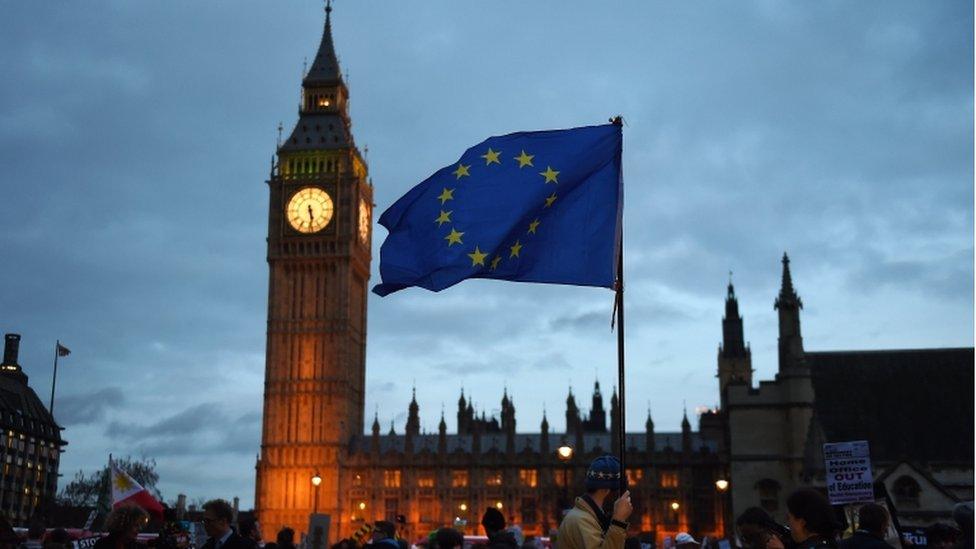
- Published28 March 2017
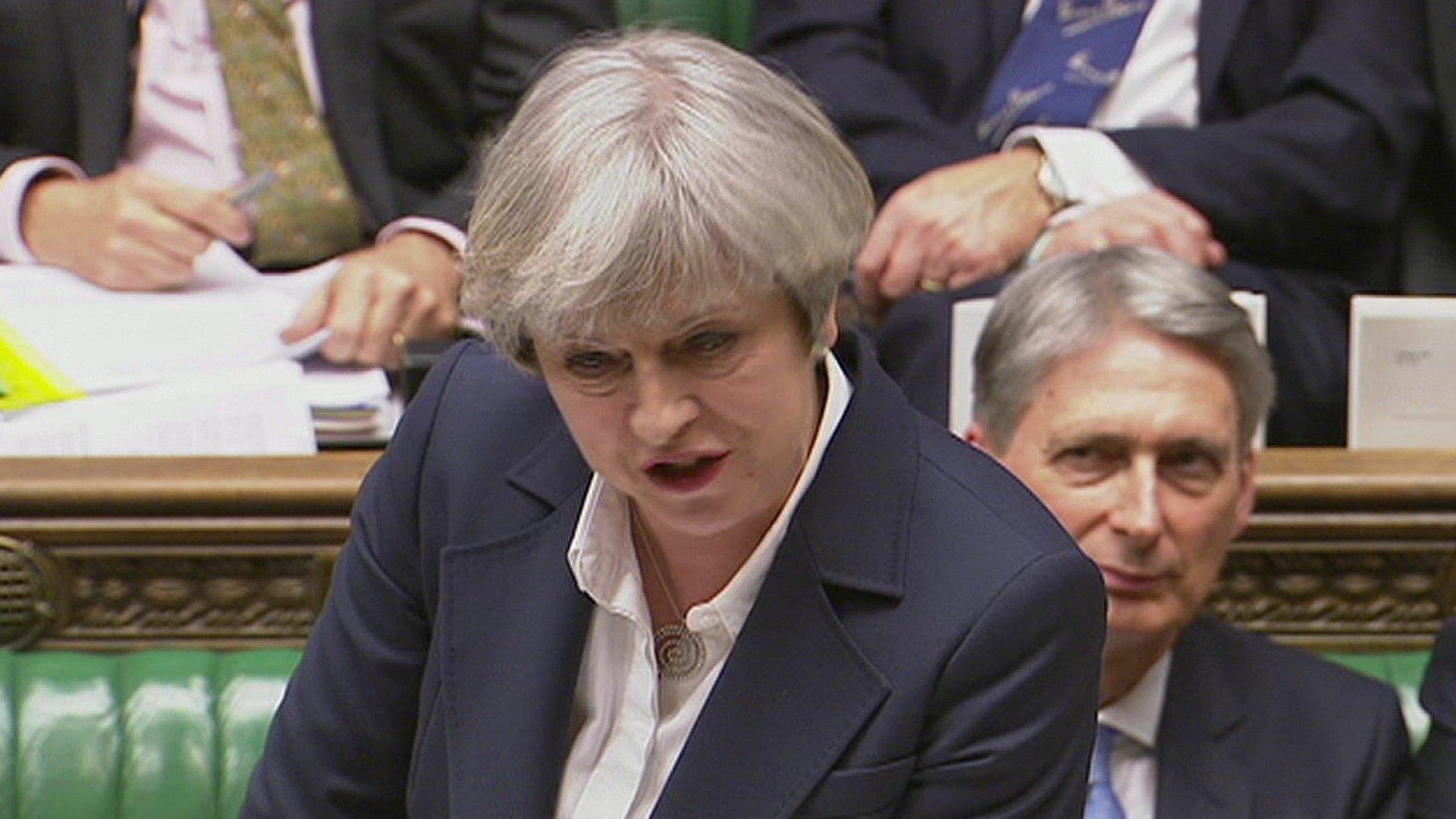
- Published29 March 2017
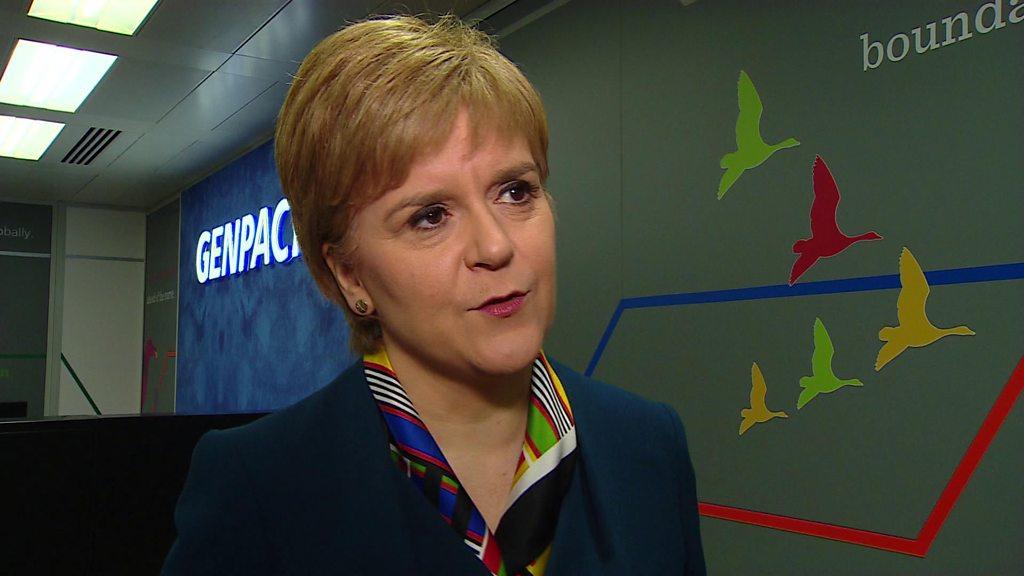
- Published29 March 2017
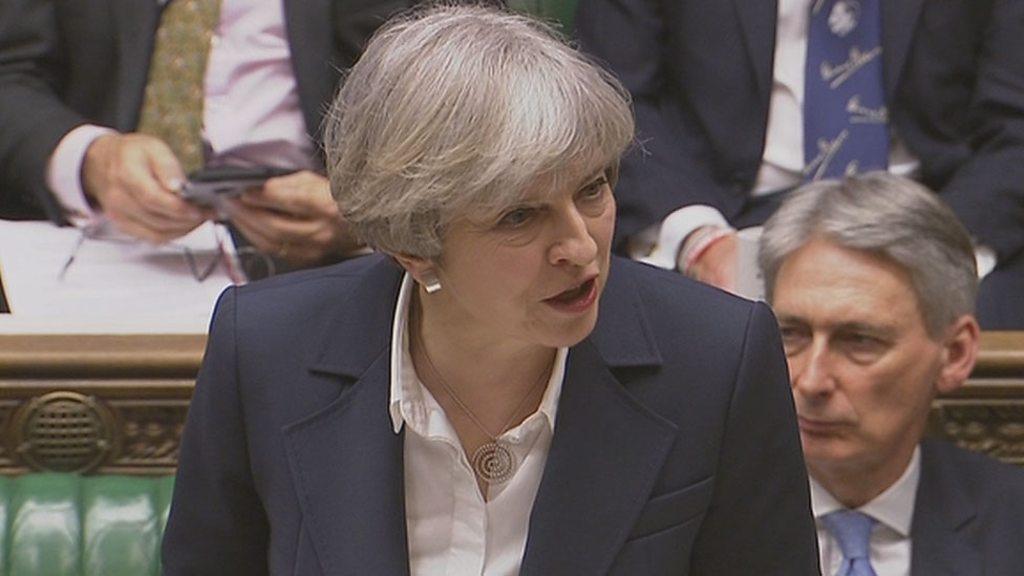
- Published29 March 2017
